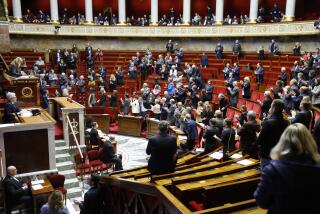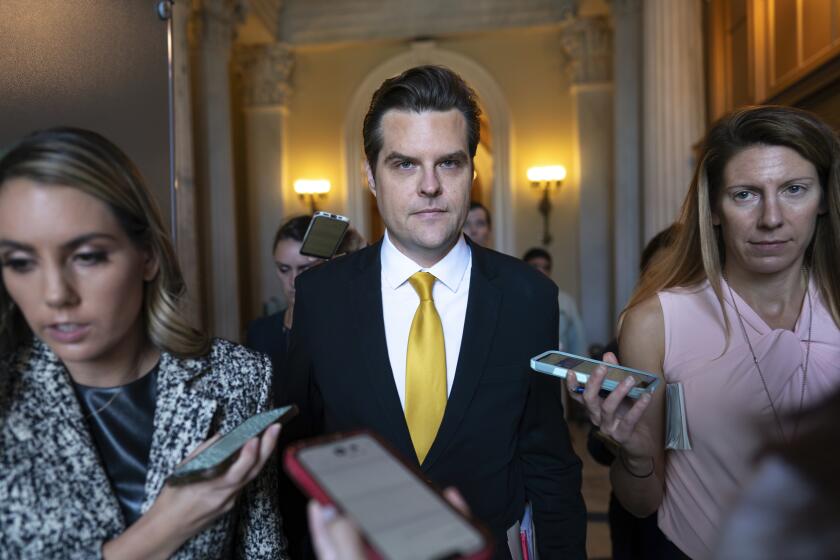Letters: Liberals and conservatives in U.S. history
Re âA tale of two narratives,â Opinion, May 6
Historian Joseph J. Ellis writes that conservatives were the central feature of the founding of the United States. But using the dictionary definition of âliberalsâ as being open to change and reform, itâs obvious the opposite is true. The conservatives of 1776 were loyalists who fought with the British. The French, Russian and American revolutions were all the work of liberals to escape oppressive governments and to start new, democratic systems.
All human progress, from the old world of kings and slaves to the rise of a middle class, has been the work of liberals. The conservative ruling classes typically oppose change, especially giving power to the people.
The United States is the creation of 18th century liberals, not conservatives.
Lance Pedriana
Long Beach
Ellis denies Abraham Lincolnâs claim in the Gettysburg Address that the American colonists founded âa new nationâ in 1776. âNo such thingâ had been proposed, Ellis writes, âonly a temporary union of sovereign states, declaring their independence from Britain, then presumably going their separate ways.â
Yet just a year and a half after the Continental Congress declared independence from Britain, it sent to the states a proposed new national government, the Articles of Confederation, that would establish a âperpetual unionâ among the states. Three times the document referred to the âarticles of confederation and perpetual union,â and in Article XIII it directly asserted that âthe union shall be perpetual.â
The Founding Fathers could hardly have been more emphatic in denying the supposed temporary nature of the union.
Joseph M. Bessette
Upland
The writer is a professor of government at Claremont McKenna College.
ALSO:
Letters: Marriage and North Carolina
More to Read
A cure for the common opinion
Get thought-provoking perspectives with our weekly newsletter.
You may occasionally receive promotional content from the Los Angeles Times.










